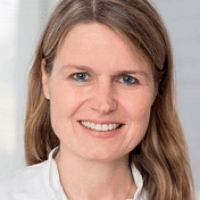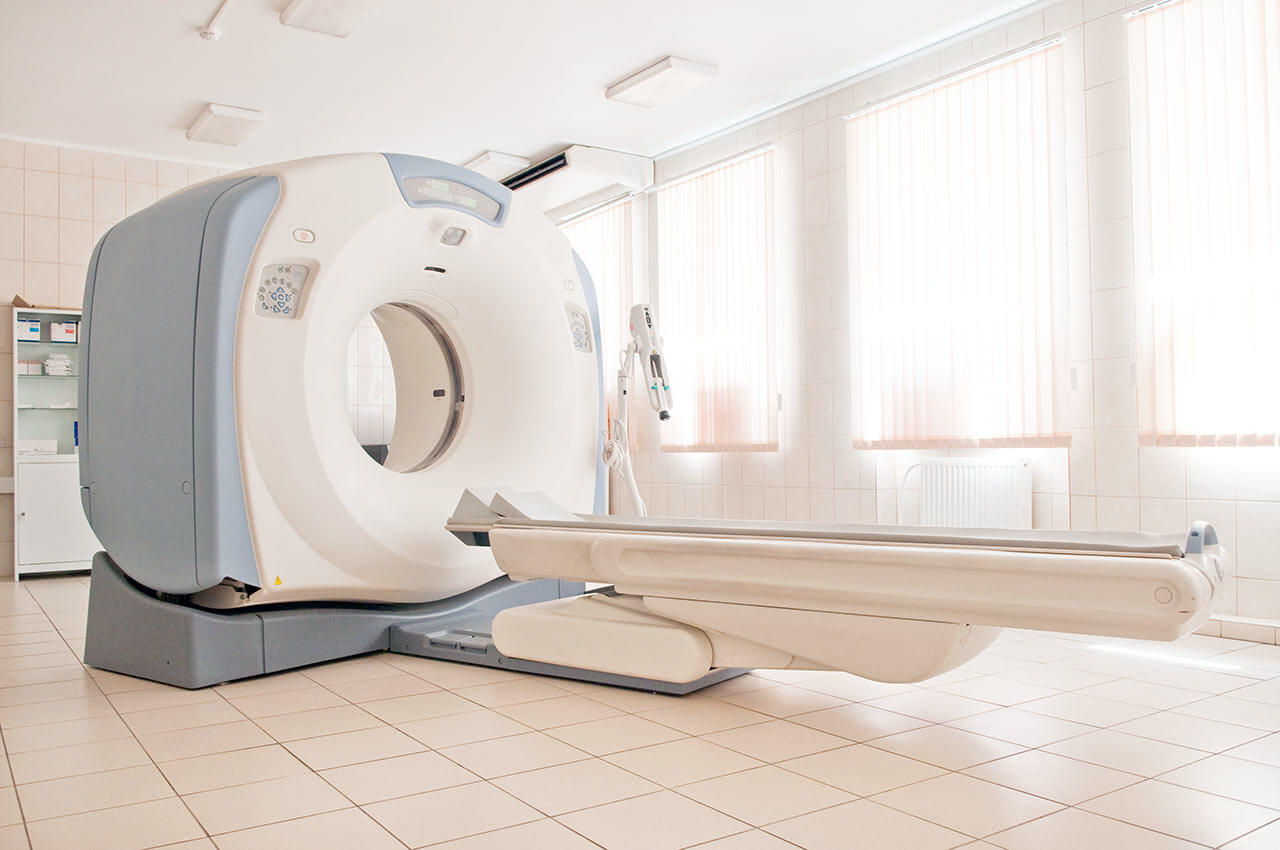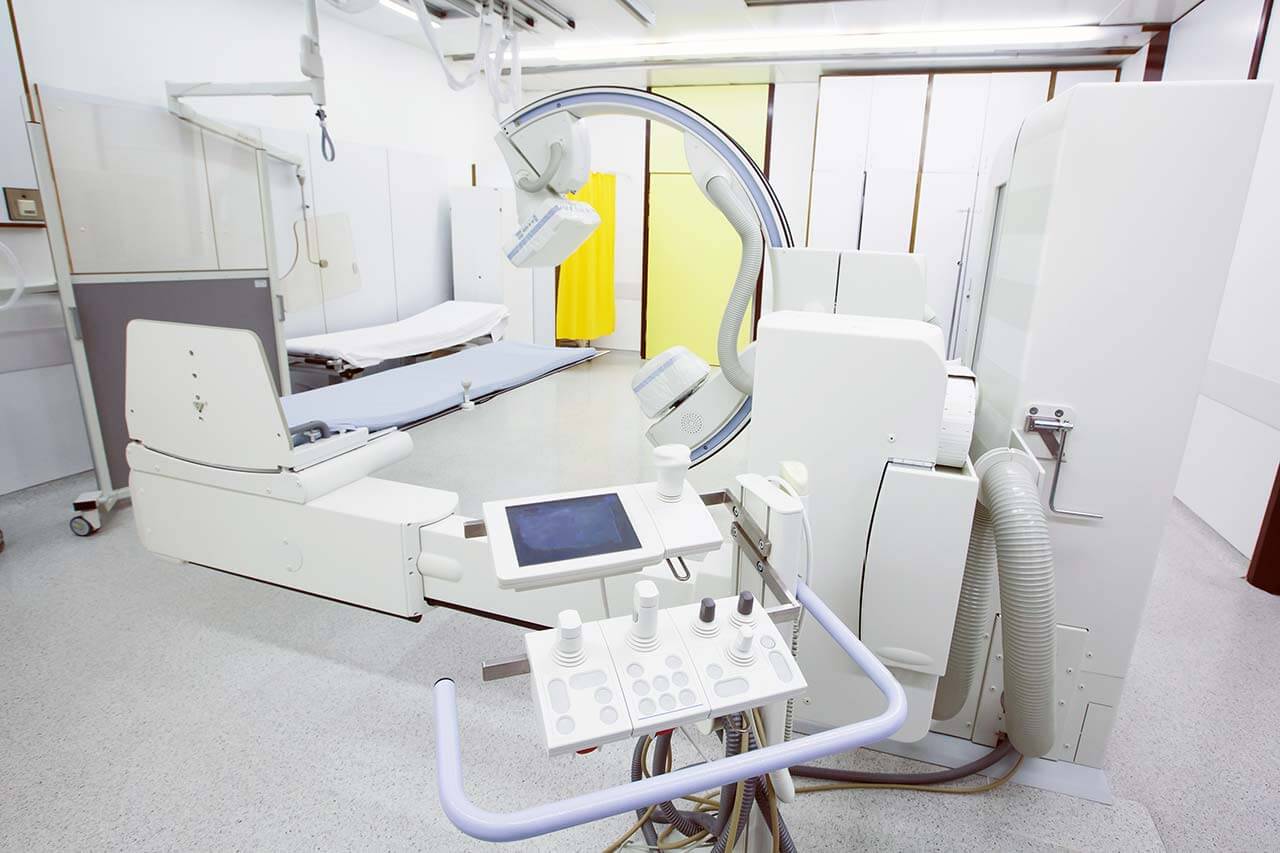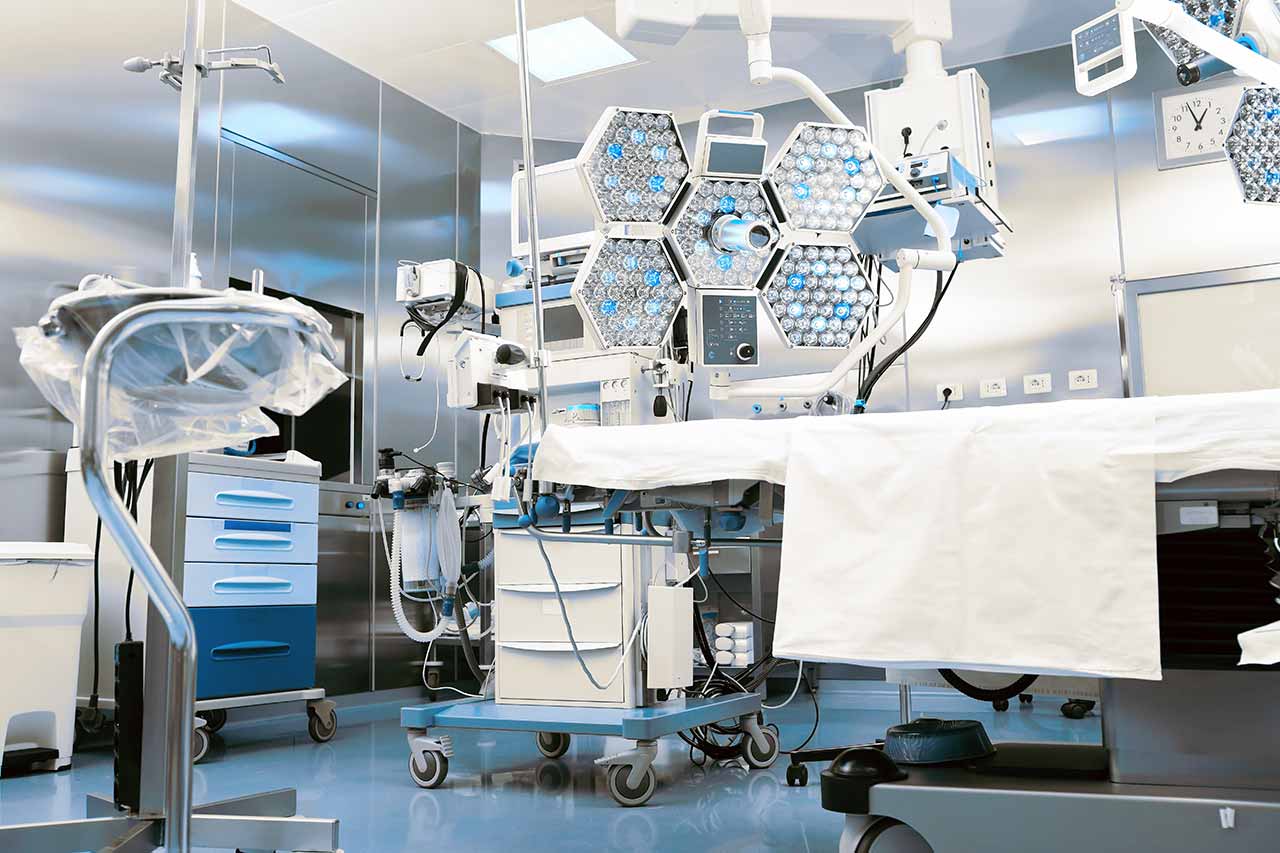
The program includes:
- Initial presentation in the clinic
- clinical history taking
- review of medical records
- physical examination
- laboratory tests:
- complete blood count
- general urine analysis
- biochemical analysis of blood
- inflammation markers (CRP, ESR)
- blood coagulation analysis (aPTT, PT, INR)
- hormone test (estradiol, progesterone, prolactin, DHEA-s, FSH, LH)
- gynecological examination.
- ultrasound examination: pelvis, abdomen, thyroid gland, breasts
- nursing services
- consultation of related specialists
- treatment by chief physician and all leading experts
- explanation of individual treatment plan
Required documents
- Medical records
Service
You may also book:
 BookingHealth Price from:
BookingHealth Price from:
About the department
The Department of General Pediatrics and Adolescent Medicine at the University Hospital Freiburg offers the full range of diagnostics and treatment of various diseases in children and adolescents, from chronic pathologies to rare diseases. The department has a specially trained team working around the clock for young patients with clinical conditions that require emergency care. Intensive research activities of the department allows to improve the existing and develop innovative therapeutic techniques. All therapeutic measures comply with international guidelines in the field of pediatric medicine. The department is headed by Prof. Dr. med. Ute Spiekerkötter.
It should be noted that first-class doctors and specially trained nursing staff who get along well with children and know everything about the needs of children of different age groups work in the department. Psychologists, teachers, physiotherapists and specialists from other areas are also involved in the therapy, which provides comprehensive medical care.
The department has excellent diagnostic capabilities: an in-house Molecular Genetic Laboratory, Laboratory of Infectious Diagnostics and Laboratory for Infectious Immunological Testing, Laboratory of Pulmonary and Allergic Diagnostics, Laboratory for the Diagnosis of Metabolic Disorders.
The main clinical focuses of the department include:
- Diagnostics and treatment of pediatric genetic diseases (including rare diseases)
- Diagnostics and treatment of pediatric infectious diseases
- Congenital infections, (especially HIV/AIDS, infectious hepatitis, toxoplasmosis, cytomegalovirus)
- Rare and chronic infections (for example, tuberculosis, nontuberculous mycobacteriosis)
- Extremely resistant, persisting or recurrent infections caused by common pathogens (for example, osteomyelitis, meningoencephalitis, abscesses, sepsis, toxic shock syndrome)
- Infections caused by antibiotic-resistant bacteria
- Tropical infections and their prevention (vaccination), individual consultations on vaccination
- Other infectious diseases
- Diagnostics and treatment of rheumatic diseases in children
- Inflammatory diseases of the joints and bones (infectious or autoimmune diseases, for example, Lyme arthritis, juvenile idiopathic arthritis, psoriatic arthritis, chronic non-bacterial osteomyelitis)
- Inflammatory vascular disease (vasculitis)
- Inflammatory diseases of the skin or connective tissue (collagenosis, systemic lupus erythematosus, juvenile dermatomyositis)
- Inflammation of the eye (uveitis)
- Other rheumatic diseases
- Diagnostics and treatment of pediatric endocrine disorders
- Diseases of the thyroid gland, parathyroid glands, adrenal glands, pituitary, gonads
- Type I and II diabetes mellitus
- Growth disorders (for example, hereditary short stature, excessive growth, premature and delayed development, syndromic and disproportionate short stature)
- Disorders of puberty and sexual differentiation
- Obesity in children
- Genetic syndromes (for example, Ullrich-Turner syndrome, Prader-Willi syndrome)
- Dyslipidemia
- Other diseases
- Diagnostics and treatment of pediatric gastrointestinal diseases
- Celiac disease
- Chronic inflammatory bowel disease (for example, Crohn's disease, ulcerative colitis)
- Chronic abdominal pain
- Constipation
- Inflammatory and cholestatic diseases of the liver
- Other diseases
- Pediatric intensive care
- Diagnostics and treatment of preterm birth and congenital malformations in neonates (neonatology)
- Diagnostics and treatment of pediatric kidney and urinary tract diseases
- Diagnostics and treatment of acute and chronic lung diseases (for example, cystic fibrosis)
- Diagnostics and treatment of allergic diseases (for example, atopic dermatitis, food allergies, allergies to insect venom)
- Diagnostics and treatment of pediatric psychosomatic disorders
- Diagnostics and treatment of metabolic disorders (carbohydrates, proteins or fats)
- Diagnostics and treatment of other diseases in children and adolescents
Curriculum vitae
- 1986 - 1992 Study of Human Medicine at the Universities of Aachen, Göttingen and Muenster.
Social Activities
- 1985, 1989 - 1990, 1993, 2001 Medical activities in Zimbabwe, India and Nepal.
Clinical Activities
- 1994 -1995 Internship, Department of General Pediatrics, University of Essen.
- 1995 Admission to medical practice.
- 1995 - 2001 Assistant Physician, Department of General Pediatrics, Center for Pediatric and Adolescent Medicine, Heinrich Heine University Duesseldorf.
- 2000 Medical Specialist in Pediatrics.
- Since 2005 Senior Physician, Center for Pediatric and Adolescent Medicine, Heinrich Heine University Duesseldorf.
- Since 2008 Head of the Section for Metabolic Disorders in Children (W2 Professor specialized in metabolic disorders in children).
- 2008 Additional qualification in Pediatric Endocrinology and Diabetology.
- Since 1.10.2012 Head of the Department of General Pediatrics and Adolescent Medicine at the University Hospital Freiburg.
Research Activities
- 1994 Doctoral degree.
- 2001 - 2003 University, Nashville, Tennessee, USA (Prof. Dr. W. Strauss).
- 2004 - 2005 Casimir-Ziegler Research Fellowship of the Academy of Sciences of North Rhine-Westphalia, University of Amsterdam (Netherlands), Prof. Dr. R. J. A. Wanders.
- 2005 Habilitation. Subject: "Congenital disorders of fatty acid oxidation: molecular and pathophysiological studies."
- 2008 - 2012 W2 Professor (metabolic disorders in children), Heinrich Heine University Duesseldorf.
- Invitation to the position of the W3 Professor of Pediatrics at the University of Bonn.
- W3 Professor of Pediatrics at the University of Freiburg.
Research Focuses
- Congenital disorders of fatty acid oxidation: pathophysiology and new therapies.
- Mitochondrial morphology and function in genetic enzyme defects of energy metabolism.
- Interprofessional education, training of medical students and nursing students (IPA Päd).
Photo of the doctor: (с) Universitätsklinikum Freiburg
About hospital
The University Hospital Freiburg is famous for its rich history and is one of the oldest and most prestigious medical facilities in Germany (one of the three best medical institutions in the country). The hospital was based on the Faculty of Medicine of the Albert Ludwig University of Freiburg, which celebrated its 550th anniversary in 2007. It should be noted that the hospital is proud of its world-renowned specialists, many of whom during their work here have become Nobel laureates.
The medical facility represents all fields of modern medicine. It consists of 42 departments, 11 institutes and 10 interdisciplinary centers. The highly qualified doctors of the hospital deal with the treatment and rehabilitation of patients with both common and rare diseases. All departments and institutes of the hospital take an active part in fundamental researches of international scale, due to which patients have access to the very latest achievements of medicine, advanced diagnostic methods, state-of-the-art medical equipment and proven effective methods of therapy.
The hospital has a variety of medical achievements, for example, the world's first TIPS procedure, the first implantation of the Jarvik-2000 artificial heart in Europe, the first robotic-assisted surgery on the brain, and the first combined cardiopulmonary transplantation in the land of Baden-Württemberg. In 2004, the University Hospital Freiburg became the first German hospital, which performed kidney transplantation in the incompatibility of blood groups. At the moment, the hospital belongs to medical centers with the greatest experience in performing such an operation.
An interdisciplinary approach to treatment, highly qualified staff, as well as individual patient care and a pleasant environment are key to the hospital’s success.
Photo: (c) depositphotos
Accommodation in hospital
Patients rooms
The patients of the hospital are provided with comfortable rooms with a pleasant design, which create a conducive atmosphere for recovery. The standard furnishing of the patient room includes a telephone, a free radio and TV, a device for calling medical staff, lockers and a safe, an adjustable bed, a chair and a table. The pediatric departments are designed with play areas. The patient may be accommodated in a single or double enhanced-comfort room (for example, with an ensuite bathroom) at an additional cost.
Meals and Menus
The patients are offered good three meals a day with a large selection of dishes. The patients inform about their wishes to the menu in advance, and this information is transmitted to the kitchen. Throughout the day, patients may drink mineral water and tea, which can be found in the department on special tables. The bedridden patients receive drinks from the nursing staff. Other drinks may be purchased at the hospital’s cafeterias and bistro, where patients can come along with visitors.
If you do not eat some products due to intolerance or other personal reasons, please notify the nursing staff in advance, so that all your wishes to be taken into account when preparing the menu.
Further details
Standard rooms include:
Television
All patient rooms have a free radio and TV. The patients can also watch the hospital’s own 24-hour channel with a varied program and interesting information.
Accompanying person
At the availability of free beds, the accompanying person may be accommodated in the same room with the patient, at an additional cost. In addition, the hospital offers special accommodation conditions for patients requiring long-term hospitalization. Parents have at their disposal special apartments in the children's hospital.





